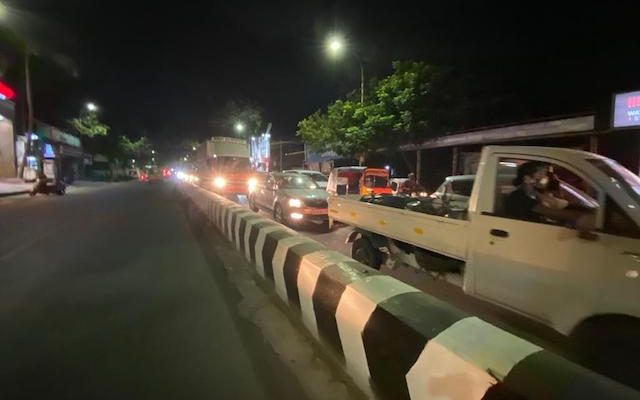The Tamil Nadu Highway Department’s recently launched infrastructure project, ‘Transformation of Existing Roads to Smart Urban Roads,’ has drawn attention for its inadequate focus on pedestrian, bus, and cycling infrastructure – this is an issue that the Alwaret-based Citizen Consumer and Civic Action Group ( CAG ) has informed the state department in a letter sent recently.
This issue is being raised on behalf of pedestrains, cyclists, seniors and those keen about relevant transport plans for Chennai.
CAG says that the project planned is funded by a substantial USD 150 million loan from the World Bank under the Chennai City Partnership Programme that ‘aims to foster seamless and secure citizen-centric services, promote the use of public transport and non-motorized modes, enhance road safety and multi-modal integration’.
CAG says that ‘the project’s outlined specifications and plans, as revealed during stakeholder consultations, do not align with crucial mobility goals. These include—expansion and enhancement of walking, cycling, and public bus services and infrastructure, promotion of integrated transportation modes, and enhancement of women’s safety in public transport and spaces.
Members from the city’s civil society have written a letter to the Department of Highways as well as the project consultants, Larsen & Toubro on the issues.
The letter points out that footpath parameters have not adhered to IRC Guidelines and the Harmonised Guidelines for Universal Accessibility, 2021.
Several foot overbridges (FOBs) have been proposed when existing FOBs are already under-utilised as they are inconvenient, inaccessible, unsafe. and they prioritise motor vehicles over people.
“The emphasis remains on ensuring priority for motorised transport and private vehicles in particular, and facilitating their flow over non-motorised, public and other shared modes of transport. This is at odds with the project’s declared intent, as well as with widely recognised standards and best practices, including the SDGs, the National Urban Transport Policy of 2014, and Chennai’s NMT policy” said Sumana Narayanan, Citizen Consumer and civic Action Group.
“If done right, this project offers Chennai an opportunity to build an inclusive and future ready transportation system that actually serves the livelihood and mobility needs of people” she further added.
CAG adds – There was no focus on bus infrastructure except for one single stretch. Even here, concerns have arisen as bus stops are proposed on the left side of the road while the lanes are positioned on the right side, creating uncertainty over how they would switch lanes. With the lack of focus on public transportation, the overall effectiveness and safety of the project come under question.
There is also an oversight in regard to provisions for cyclists, raising concerns about risks and inconveniences they will face.
Transport sector emissions in Tamil Nadu have witnessed a persistent upward trend in recent years. Within Chennai, the road transport segment makes-up a substantial 26% of the city’s overall Scope 2 GHG emissions. Simultaneously, deteriorating air quality is a cause of concern too.
CAG contact: Sumana Narayanan – 9445395089 | sumana.narayanan@cag.org.in
No tags for this post.



